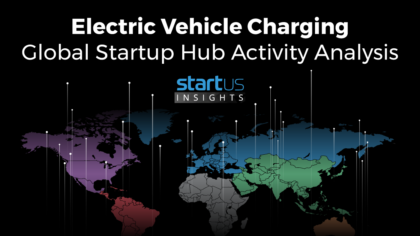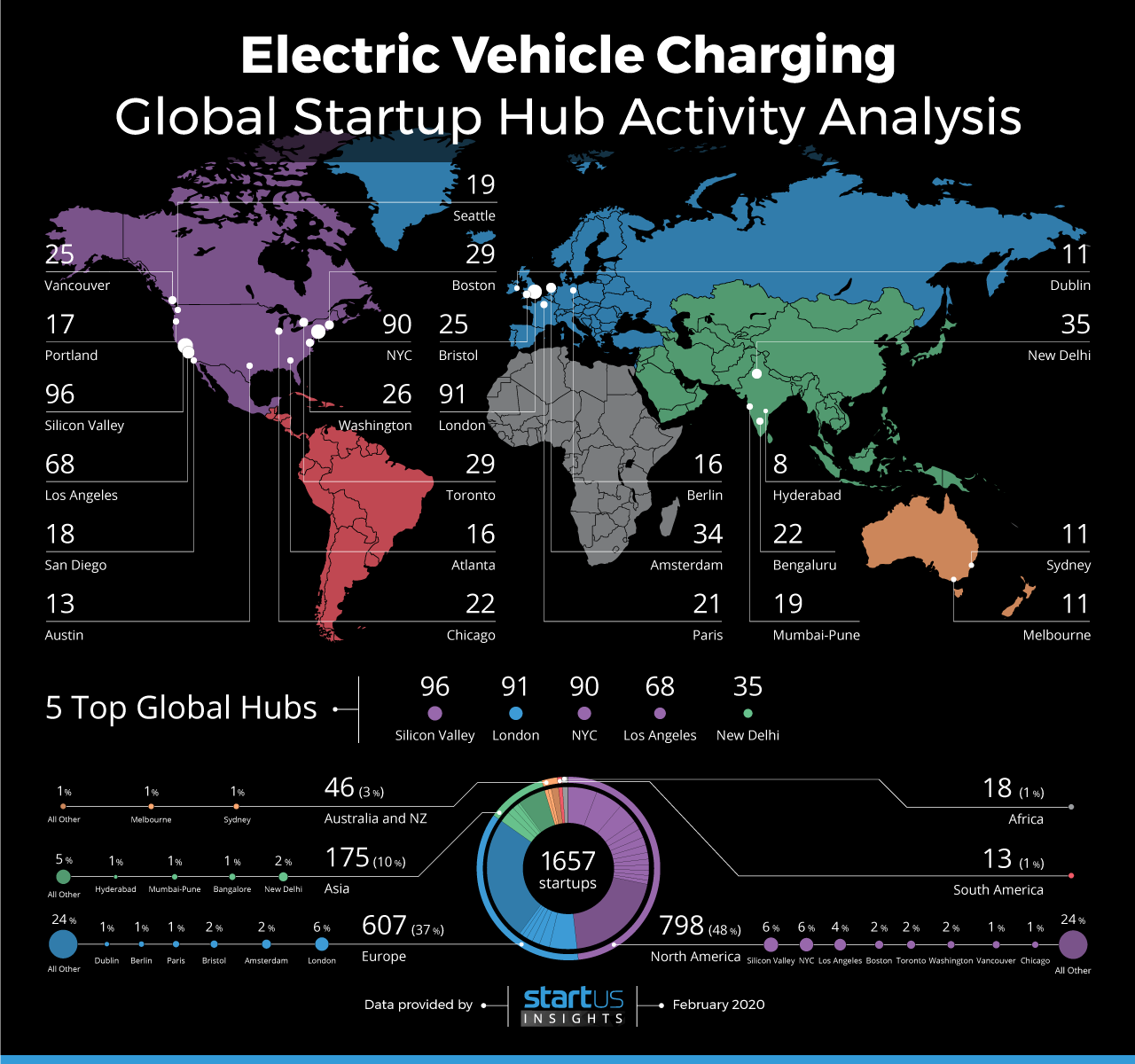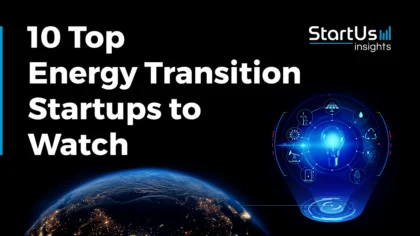Accelerate Productivity in 2025
Reignite Growth Despite the Global Slowdown
Petrol and diesel are two major reasons why we continue with unsustainable practices that cause harmful pollution. The rising number of vehicles on the roads and growing demand for cheaper mobility in congested cities moves the focus of carmakers away from electric vehicle charging solutions – till now at least.
Visible effects of a changing climate like wildfires, hurricanes, and floods have made governments take notice of the myriad of solutions that have the potential to mitigate the effects of further damage to the environment. Electric vehicles now dominate several countries’ agendas with many concrete plans laid down for developing the required charging infrastructure.
Top 5 Global Electric Vehicle Charging Startup Hubs
Using our Innovation Intelligence Platform, we analyzed the geographic distribution of global activity in electric vehicle charging. We identified 25 regional hubs (hub = the regional geographic center of activity for a specific topic; it covers the center point with a radius of 100km (62mi)) that see high activity in developing charging solutions for electric vehicles. According to our data, Silicon Valley, London, New York City, Los Angeles, and New Delhi are home to 87 startups and account for 23% of global activity and 5% of global startup activity. Let us have a look at some of the electric vehicle charging startups from these 5 top hubs.
With wide roads and a heavy dependence on cars and other vehicles for mobility on a daily basis, the USA dominates the industry with nearly half of all the electric vehicle charging startups based here. With no such advantage, European startups still account for more than a third of all activity in this sector.
Chinese megacities like Shenzhen and Shanghai are rapidly adopting electric vehicles. All of Shanghai’s public buses are electric vehicles, for example. Other regions with a rapid need for adopting clean technologies, like India, Indonesia, and the Philippines, are currently developing infrastructure solutions to support such electric vehicle adoption.
#1 Silicon Valley | 96 Solutions
Known around the world as the origin for most of today’s modern technologies, it is a region where innovations and breakthroughs happen often. The people’s participation in pushing technology plays a vital role in making it happen, with many of their livelihoods tied to technology is some way. With one of the highest rates of electric vehicle adoption in the world, it is not surprising that electric vehicle charging is currently a key focus area for many startups here.
AMPLY from Mountain View develops electric vehicle charging and charging-as-a-service solutions for commercial fleet operators. Such fleets are primed for the transition to electric energy and AMPLY offers a range of integrated products and services to help fleets achieve zero emissions. Their Power Service Model offers everything for fleet managers to transition to and manage electric fleets and their charging. Fleets benefit from significant savings in costs and maintenance by going electric.
#2 London | 91 Solutions
The quality of air in London has been deteriorating for a while now. The effects of recent government efforts to improve the situation will take some time to be felt in the streets. Small successes, like running clean buses through high-pollution routes improved the air quality within months, has prompted an ambitious plan by the government to install 1.000 AC (standard charging) and 300 DC (fast charging) electric vehicle chargers across the city by the end of 2020.
London-based startup Urban Electric Networks builds roadside pop-up electric vehicle chargers. With half the electric vehicles parked by the curb overnight, this solution allows residential areas to easily adopt electric vehicles. The fast-charging unit is built under the ground, popping up when there is a vehicle to charge, but otherwise blending in with the pavement. With millions of roadside parking spots across the city and the world, this type of charger has the potential to rapidly increase electric vehicle adoption rates.
#3 New York City | 90 Solutions
One of the main challenges for New York City is the electric vehicle adoption rate. Many residents renting their homes and a preference for public transport has held back the number of electric vehicles on the road. The government plans to replace some parking spots across the boroughs to kick-start electric vehicle adoption. However, the announcement has New Yorkers worried this will mean even fewer parking spots for fossil fuel-based vehicles.
Based in Manhattan, Saascharge creates the eponymous EV Platform, a cloud-based software solution that enables users to create and manage public or commercial electric vehicle charging station networks. They offer end-to-end solutions as well as modules for existing players. Their solutions encourage the setting up of more electric vehicle charging stations, a key factor in increasing the rates of adoption. The platform is designed for utilities, mobility, and commercial establishments.
#4 Los Angeles | 68 Solutions
Los Angeles is one of the more environmentally-conscious cities in the world today. With strong government policy and availability of finance, it is ideally placed for large-scale electric vehicle adoption. With an eye on the Olympic games of 2028, the city intends to have at least 5.000 electric vehicles and 28.000 electric vehicle charging points by then. The main challenge is to enable renters to charge their cars outside their homes.
Mica Energies, a startup from Irvine, south of Los Angeles, produces wireless charging solutions for a range of applications including for electric vehicles and mobility. They are developing technologies capable of extracting radio frequency energy and converting it to DC. Their far-field wireless charging solution is based on a combination of engineering and energy harvesting. Though this solution maybe a few years before mass implementation, it is such big thinking that will propel the transition from fossil-fuel based mobility.
#5 New Delhi | 35 Solutions
Smog, traffic, and air pollution in the Indian capital affect millions of lives year long. Though the electric vehicle industry is very nascent, the need for shifting to clean technologies is urgent. The government announced plans to install over 2.000 charging stations across 62 cities, with the aim of having electric charging points every 4km in big cities over the coming years. Startups are developing solutions across the electric vehicle value chain to address the urgent need of cleaning up the air.
Electrifuel is a startup from New Delhi that works on the infrastructure to support electric mobility. Their battery management system improves the life and performance of the battery. To create efficient battery systems, the startup focuses on advanced communication protocols, state of charge and state of health safety algorithms and passive cell balancing.
What’s next?
Electricity demand management is a highly challenging and unforgiving application. Electrons, amps, kilowatt-hours, energy flow rate, time-of-use, and demand charges – all new terms for residential, commercial, and fleet users of electric vehicles. Simple human errors like turning on too many chargers simultaneously, scheduling charging incorrectly, or having faulty equipment can lead to expensive consequences.
The faster we adopt clean technologies, the faster we address new challenges and opportunities that present themselves.








